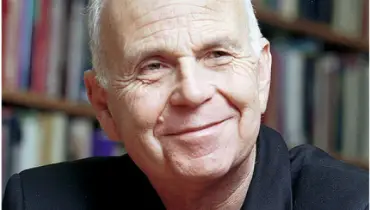Why the Lawsuit by Suspended PGA Golfers Against LIV Golf Is Significant

A spectator viewing area during a LIV Golf Invitational Series at the Centurion Club, Hertfordshire. PA Images/Alamy Images.
With the recent conclusion of the playing of the 150th Open on July 14 -17, 2022 at the Old Course of St. Andrews, it was just going to be a matter of time before it happened. Many in the professional golfing community have been expecting it, with hints of rumors for months and finally after two months of waiting it happened.
The suspended PGA golfers of LIV Golf have now finally filed a formal lawsuit against the PGA Tour, the DP World Tour, including naming the Executive Commissioners of both Joseph William Monahan, IV and Keith Pelley respectively in their suit. It was filed on August 3, 2022, with the Circuit Court of the Fifteenth Judicial Circuit in and for Palm Beach County, Florida.
The Plaintiff, Larry Klayman, on behalf of the suspended PGA golfers filed a class action suit against the Defendants “for violations of Sections 542.18 and 542.19 of the Florida Antitrust Act, Fla. Stat. §§ 542.18, 542.19, and for civil conspiracy.” (Larry Klayman PGA Tour Lawsuit | PDF | Monopoly | Competition Law (scribd.com)
The plaintiff’s case breaks down as follows that the defendants “attempt to monopolize the relevant market, and by civil conspiracy, as those set forth in the First through Fifth clauses of the Action.” It is the monopolization and the decades long discrimination practices that is the key.
However, this is not the first time that a lawsuit against the PGA based on the monopolization of the relevant market and civil conspiracy has been filed. Back in 2018, the 9th Federal court in California in the Hicks v. PGA Tour (No. 16-15370) (16-15370-2018-07-27.pdf (justia.com), made their decision public ruling against the Professional Caddies Association who brought a similar suit against the PGA.
The Caddies suit was for $50 million and was based on the action by the PGA that requires caddies to wear bibs during the events. The issue in this case was that “the bibs worn during the tournament events generates revenue that is not shared by the Tour.”
The Caddies are not compensated for wearing the bibs that promote the tournament sponsor during events. The bibs bear the logos of the tournament sponsor which, for all practical purposes, makes each caddie a mobile walking billboard during the tournament promoting not their golfer but the sponsor.
The PGA contended that the bibs worn are a uniform and that the caddies by their agreement in the contract accept the wearing of the bibs without any expectation of additional compensation. Because the caddies’ association failed to establish and show a “plausible economic duress” they experienced by wearing the bibs, the court ruled in the favor of the PGA.
Here is where I feel the Caddies Association failed in their case. A uniform by definition is, “remaining the same in all cases and at all times, unchanging in form or character. It is the distinctive clothing worn by members of the same organization or body or by children attending certain schools.” The uniform in this case is the bib.
However, as stated in the definition, the uniform is “unchanging in its form and character,” the bibs are in fact changing in its design from one tournament event to the next. Though each bib may be similar in its look because the design of the bib is based on the specific tournament sponsor of the event, the look or form then of the bib is ever changing. Example being the white coveralls worn by the caddies during the Master’s Tournament and the bibs worn at the PGA Championship.
In this case, the white coveralls worn at the Master’s only displays the logo of the Master’s there are no other corporate sponsor logos displayed. To this point, Coke-a-Cola’s logo is different than that of the logo of FedEx both being an official PGA tournament sponsor.
Corporate sponsorships for PGA golf events come at a premium price. Corporate sponsors pay high dollars to have their logos in certain key areas on the course and in media programs to include the predominant spaces such as on the front of the bibs worn by the caddies. Though the bibs can contain more than one corporate sponsor logo, the process is the more predominant the logo, the bigger the space needed, and therefore, the higher the price paid to showcase a dominant logo of a corporate sponsor.
To imply that the PGA does not receive any revenue from the bibs is a false statement. In addition, because the PGA considers all caddies as an ‘independent contractor,’ being in the same consideration as the professional golfer, then the contract or agreement inferred to by the PGA that all caddies accept, should therefore be negotiated on an individual basis by each caddie with the PGA before the playing of the event.
Caddies are the employees of the professional golfer for whom they perform their duties. They are not the employees of the PGA, the specific golf tournament, or of the specific country club where the event is being held. This “assumption” that was inferred to and brought out in Hicks v. PGA Tour, is a false assumption and is not legally binding it is hearsay and not fact.
The PGA for decades has gain in its control and domination over the event participants, golfers, and caddies, in the United States and now internationally by forcing or mandating policies that are proven in past cases to be nothing more than “assumptions” on the part of the PGA. This continued growth in the monopolization of the relevant market in the sport of professional golf has allowed for the unfettered bigotry and discriminatory actions and practices conducted by the PGA and its Commissioner to continue.
Now that these practices have filtered over to Europe with the DP World Tour, truly time now has come for our federal courts to take a serious look at these actions and rein in the tarnished hands of the PGA, the DP World Tour, and their leadership.
There must be a call to halt these actions which are restrictive to the point that the elitist attitudes performed by the PGA and DP World Tour should be dissolved immediately opening up then the PGA to anyone who desires to be a professional golfer and caddie to have the freedom to compete in multiple leagues and venues if they so desire without any repercussion as to being fined, suspended, or both.
That then will allow for the “fair and equitable” treatment for all.






















